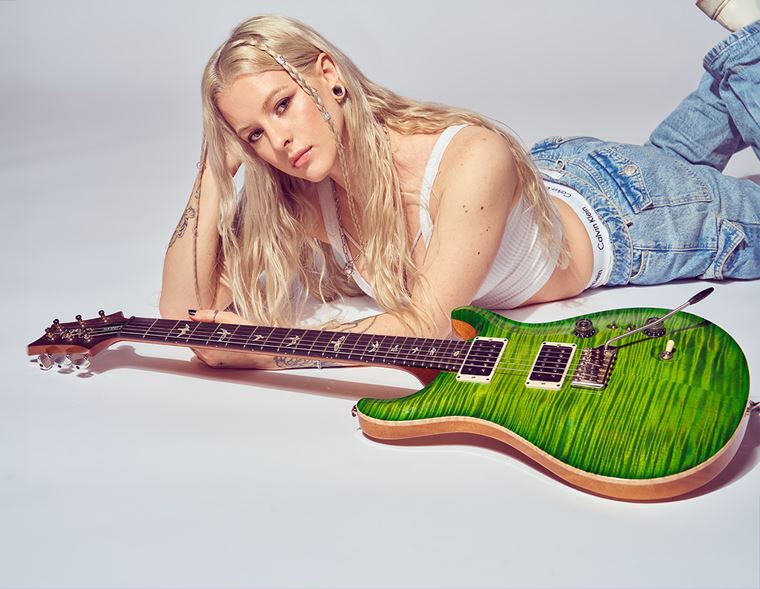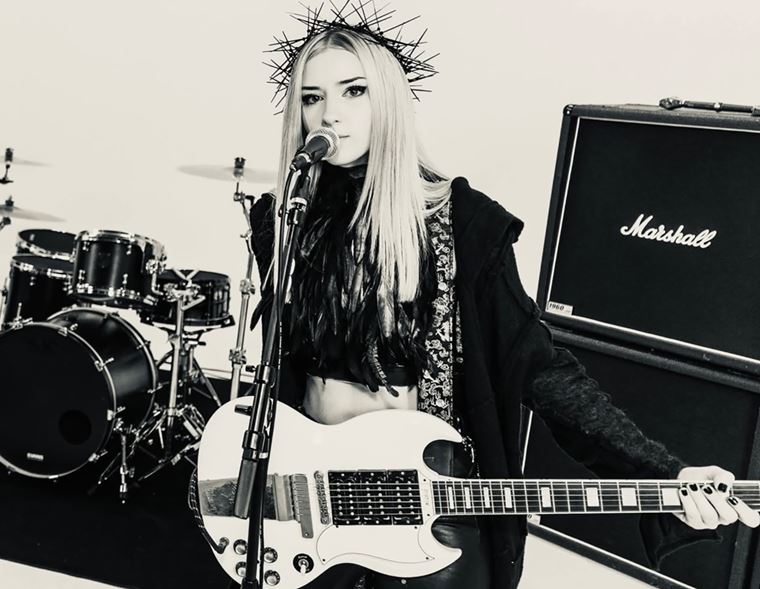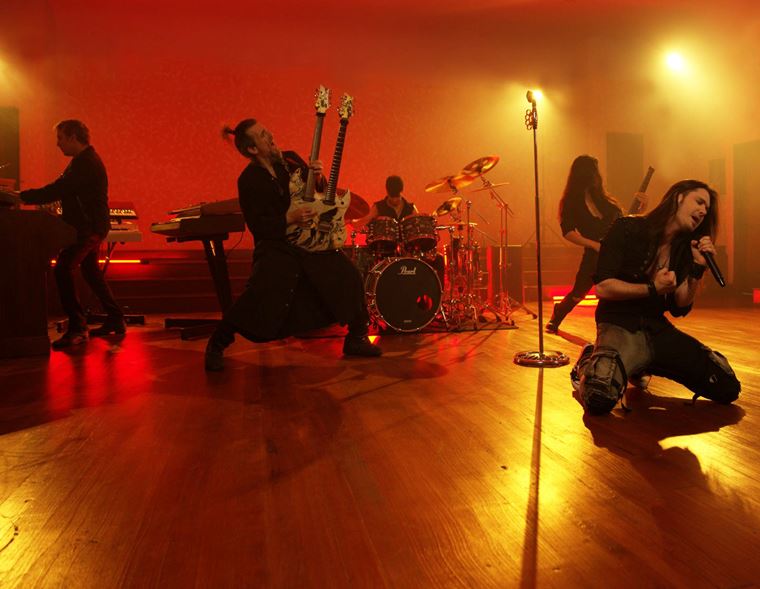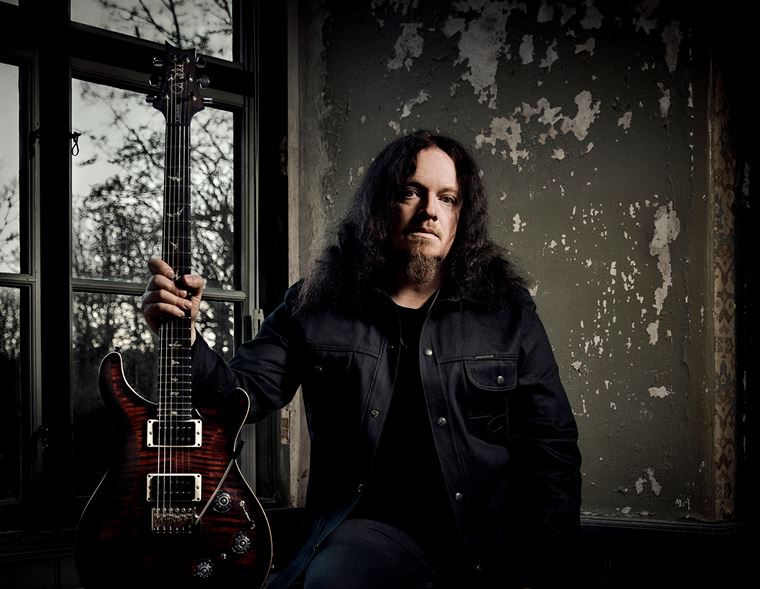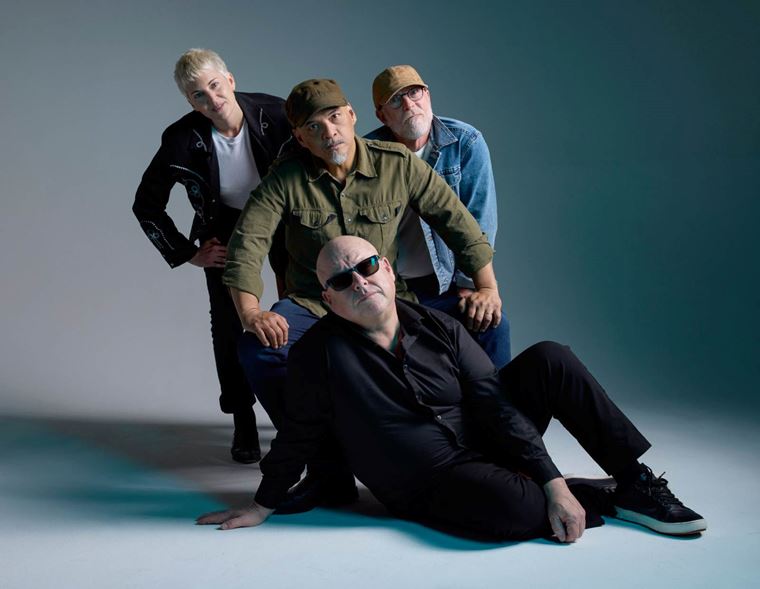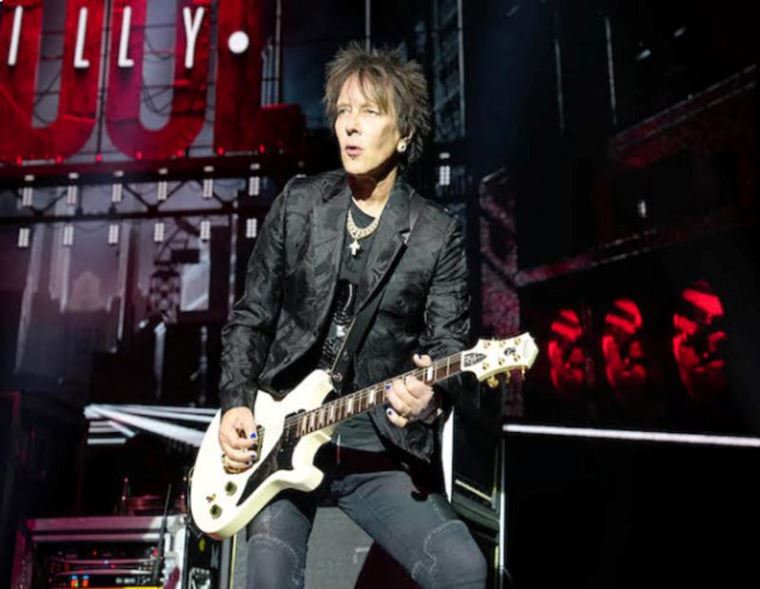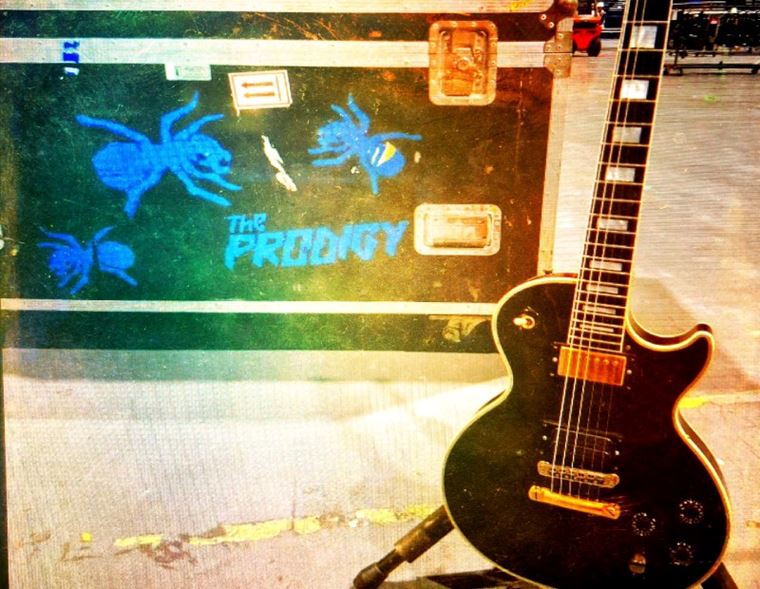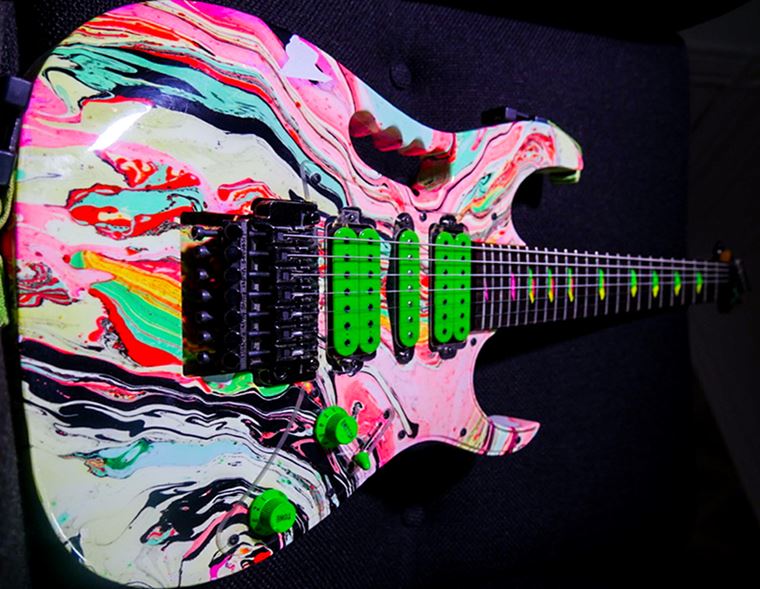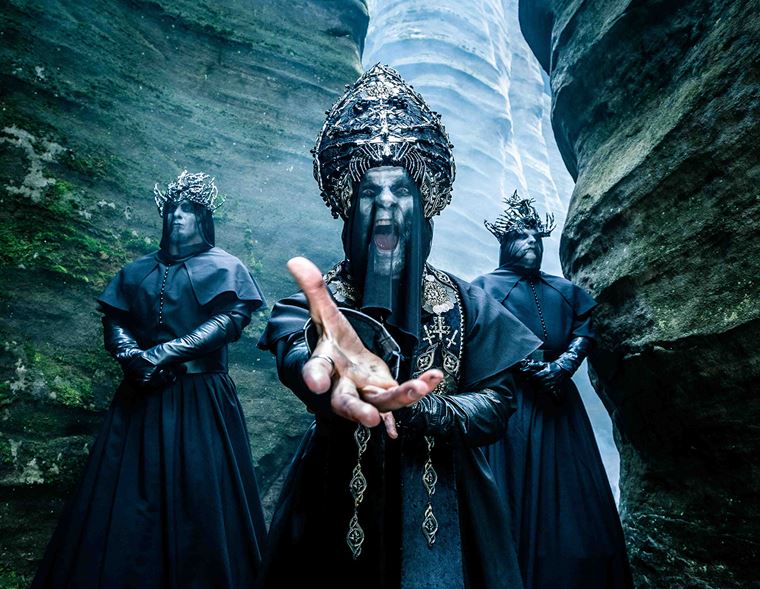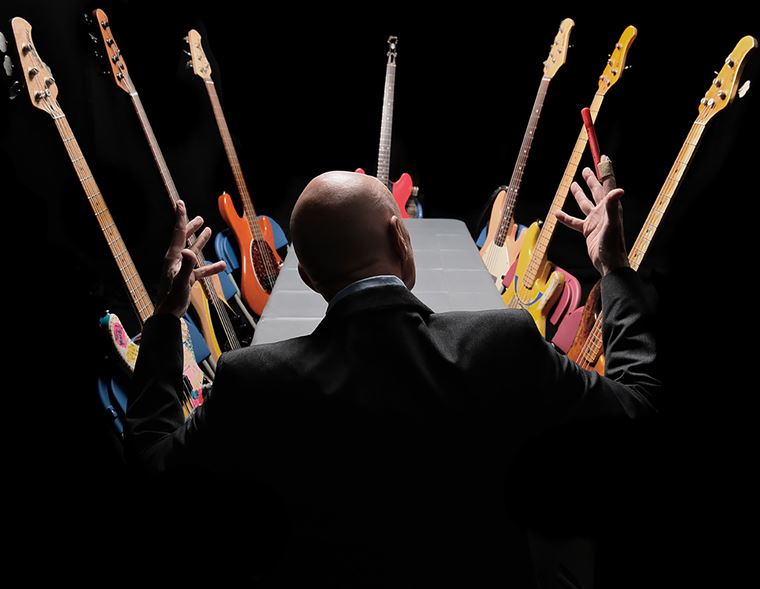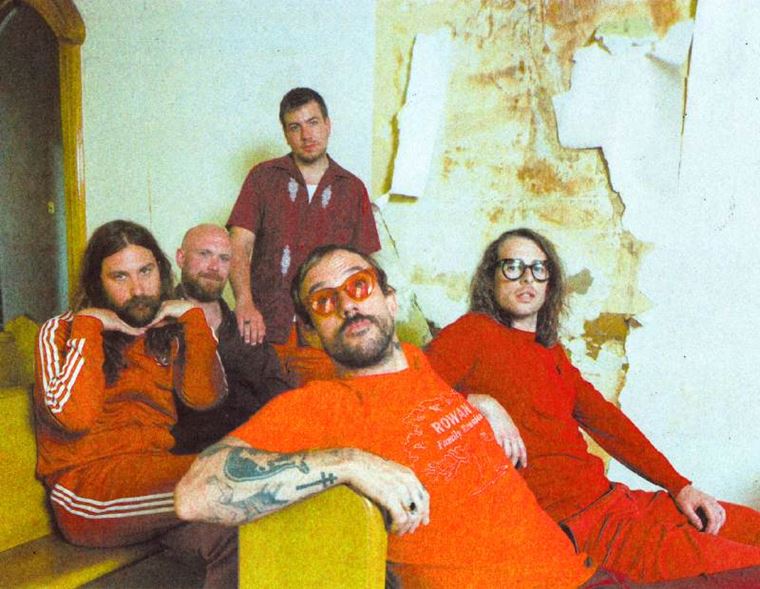Claire Genoud Interview
Published on 15 October 2021
What does it take to make it as a session player today? What kind of gigs are out there for a guitar-slinging gun for hire?
These questions and many more crossed our mind as we organised an interview with PRS Pulse artist and session guitarist Claire Genoud. Hailing from Switzerland but living in London, Claire has made a name for herself as primarily a live player, joining a variety of touring bands and artists. Recently, she was chosen by PRS as one of their 2022 roster of Pulse Artists, a select troupe of PRS-toting players making waves on their local or national scene.
We Zoomed Claire recently whilst she was back home in her native Switzerland to ask her about life as a travelling musician, and about just what it takes to become an in-demand session musician in today’s musical climate. Claire was a real pleasure to talk with, friendly and energetic, and had plenty of good pointers for those looking to follow a similarly nomadic musical life!
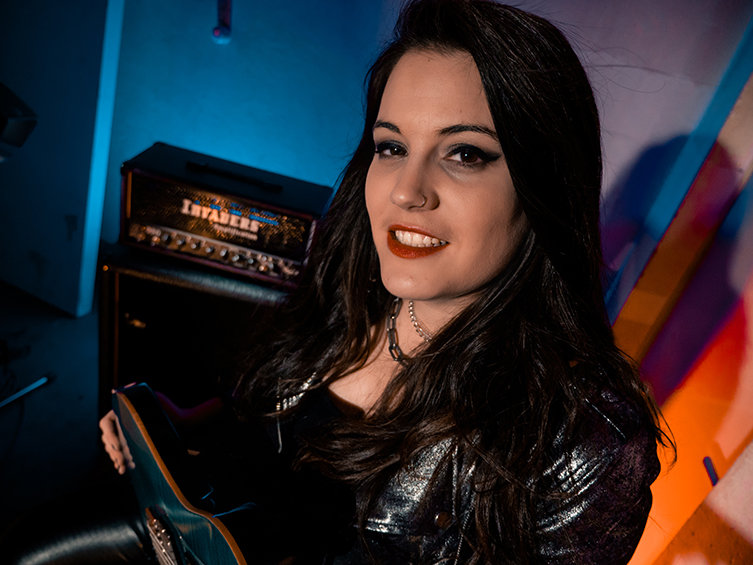
Claire Genoud Interview
guitarguitar: So, let’s start at the beginning. When did you realise that you were going to dedicate your life to rock?
Claire Genoud: So, I started to play guitar when I was 14, just because I started to listen to metal. I was a huge fan of Metallica and all the classic bands that everyone loves. I was taking lessons in my local music school and sometimes we could play in bands: we could sometimes try out to play with other people and this is where I realised, ‘Oh my god, this is so much fun!’ I loved it, and after a while I started to be like, what can I do to go further? But in Switzerland at the time, if you wanna be a musician, it’s not really a thing in Switzerland, not like in the UK where it’s actually a job! In Switzerland, it’s, like, alien! (laughs) ‘We don’t do that here’! Well, maybe in Geneva or Zurich, but not in Valais, where I’m from. It’s the touristy bit with all the mountains so it’s really pretty, but in terms of the music scene, it’s not really possible.
So, I thought, okay, I need to leave the country if I want to take that seriously. At the time, you could go to school, but if you play electric guitar, you have to go to jazz school, and that’s not what I do: I don’t like jazz very much! (laughs) Or, you go to study classical guitar, which I don’t do either. So, I knew and I had to leave, and I thought London was the right choice. And London was the right choice!
GG: Haha, cool!
CG: I studied at the ICMP in Kilburn for three years. That’s when I realised I really wanted to specifically play live, because you can be many things, but we were playing a lot and I realised that playing a gig is really what I love the most.
GG: So, before we go further into that side of things, you mentioned Metallica. Who were your other influences when you started out?
CG: So at first, yeah, I was a huge Metallica fan, so obviously Kirk Hammett. I have his wah pedal, you know the one with the skeleton foot? (laughs) So, definitely Metallica, and AC/DC, though they are not considered metal any more. So yes, the classic bands.
GG: Were you more of an ‘Angus’ or more of a ‘Malcolm’ to begin with?
CG: Angus!
GG: Let There Be Rock! Nice. You went to London, studied there and stayed there. Did you find the whole notion of becoming a session player something that was difficult to establish? And what’s the London session scene like?
CG: It’s a hard question, because there are a lot of people, so you could say the competition is big, but I think if you really have the passion for it, because to me, that was the only thing I was excited to do! I wanted to do gigs so I dedicated all my time to networking, also every time I was going out to a gig or something it was still an opportunity to talk to people. Everything you do, you can really focus on meeting people. I think it’s really who you know. Most of the gigs you get is like, ‘Oh, I need a guitarist’, or ‘I know someone who needs a guitarist’, so yeah, make friends: not to use them, obviously, but actually make friends. Make connections. That’s the best thing.
GG: That answered a few of my questions actually! Haha! Now, obviously you’re a very good guitar player, but it’s worth probably saying that there are quite a lot of good guitar players out there, right? So, is it enough to be a better player than your competition, or are there other qualities that are important? You kind of touched on it there with the networking, but are there other things more important that simply being a very good guitarist?
CG: Oh yeah, I mean, definitely... yes! (laughs) I think it depends on what kind of gigs you want to do, you know? Because most gigs are not shred or very technical stuff. It’s gonna be stuff that most people can play well, but if you are a nice person, easy-going, then people just want to hang out. When you tour, you spend a lot of time hanging out, sound checking or in a van or tour bus, so people don’t want to be surrounded by people who are complaining or judging other people. Just being nice is what’s gonna help you get most gigs. Then obviously you need to deliver. Basically, you need to be a problem solver. The people who hire you, they want somebody who is going to do the good job, also having good equipment, and be able to give them what they want. So, nice people who can deliver: if you can do that, it doesn’t matter if you’re not a shredder. I’m not a shredder, you know what I mean? (laughs)

GG: Yeah, I think you’re being a bit modest there: I’ve seen you shred it up on YouTube, haha! Now, most of the jobs you do, from what I gather, are bands, tours, longer term commitments, compared to a studio session thing where you can be in and out. It’s a whole different thing. At any given point, how many bands are you generally in?
CG: At the moment, I play for 3 bands that I gig with. I also do a lot of one-off gigs as a dep. I do a lot of that, so it’s changing all the time, to be honest.
GG: Okay, and with that situation, if you’re touring with somebody for, say, a month, and then another band that you’re working with overlaps with their gigs, how do you manage all that?
CG: It’s definitely an organising thing. I spend a lot of time just organising my schedule, which is annoying (laughs), but I also have a list of deps that I use when I can’t do the gigs. So far, I’ve managed to make it work. The good thing about being in London is that it’s easy to get everywhere in the city. I heard that in LA, you spend like 4 hours driving to a rehearsal or something, so it can be more difficult to do that. London is quick and easy to travel, and that is a big reason why you are able to do more.
GG: That’s a good point! So, does it suit your personality and preferences to, at any given point, change your gig suddenly and do quite a lot of different things, rather than touring the same 12 songs for 2 years?
CG: Yeah, I love being in many projects. If I’m going to dedicate myself to one, it would have to be something that I really, really enjoy. I’m a rock guitarist, so I’m not going to do something that is not somewhat rock, but it’s interesting to do different stuff. It’s probably a bit more complicated to organise, but that’s what I like, yeah.
GG: Ok, and so with the gigs that are slightly more long-term, is there a point where you have an opportunity to have some sort of input in the writing process? Or is it strictly ‘play the show’?
CG: At the moment, with all of them, I’m a session player, so they hire me to play their stuff, which I don’t have a problem with, I actually love that. But I’m also now, for the first time, recording my own project that is going to be launched next year. I think it’s good to have somewhere where I’m creating. Also, in my videos I can write solos and be creative, but for the work, it’s mainly situations where I don’t really have creative input. If you can have both, it’s the ideal gig!
GG: I’d say so! So is there enough constant session work to mean you can completely be a musician, or do you have to supplement it with other work as well?
CG: I teach a little bit: I have two guitar students, but yeah, that’s it really! Sometimes I do gear demos and stuff, that’s something I want to do more, but yeah, otherwise just gigs, really.
GG: Brilliant! Well done! And well done also for being picked as a PRS Pulse Artist!
CG: Thank you! Anna (from guitarguitar’s Glasgow store) and I follow each other on Instagram and then she got in touch with me, saying I should apply for that. She sent me the pack and really helped me through the process. She’s great! (laughs)
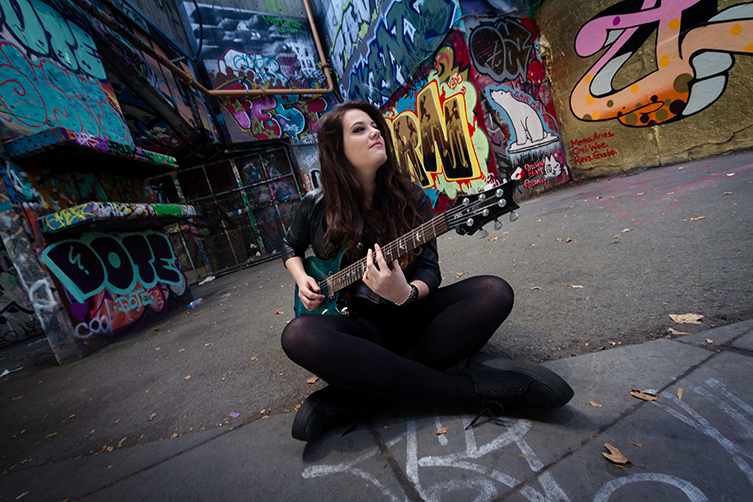
GG: That’s a good outcome! And so, what is it about PRS guitars that you particularly like?
CG: Well, one of my favourite guitar players, Mark Tremonti, uses a PRS and because of him I picked up a PRS at first. And probably, the reason why most people get into PRS at first is because they look amazing! I tried one and yeah, the one I have now, it felt like ‘my guitar’ straight away. It was just perfect: everything I like. It’s just a feel thing, and also, I think that they are rock/blues guitars but you can play a lot of stuff, it’s not like a ‘one-style’ guitar.
GG: They just look great, they feel great and they sound great.
CG: Yeah, exactly: everything you want from a guitar, they have it, really.
GG: I don’t know if you’d agree, but my experience of PRS guitars is that there’s a lot of clarity, compared with other mahogany/humbucker guitars. Everything rings through more, with extra top end. Have you found that at all?
CG: I know what you mean, totally. What I like about PRS as well is that the guitars are kind of light. When you gig, that’s a good thing! I had a to play with a Les Paul a long time ago because my PRS had an issue, and I noticed it’s such a heavy guitar. And the neck was a bit big for me. I like the PRS profiles, they are perfect for my taste. It’s just a taste thing, isn’t it?
GG: It is, it is. Is it the Custom 24 style you go for?
CG: Yeah, I like 24 frets better, yeah.
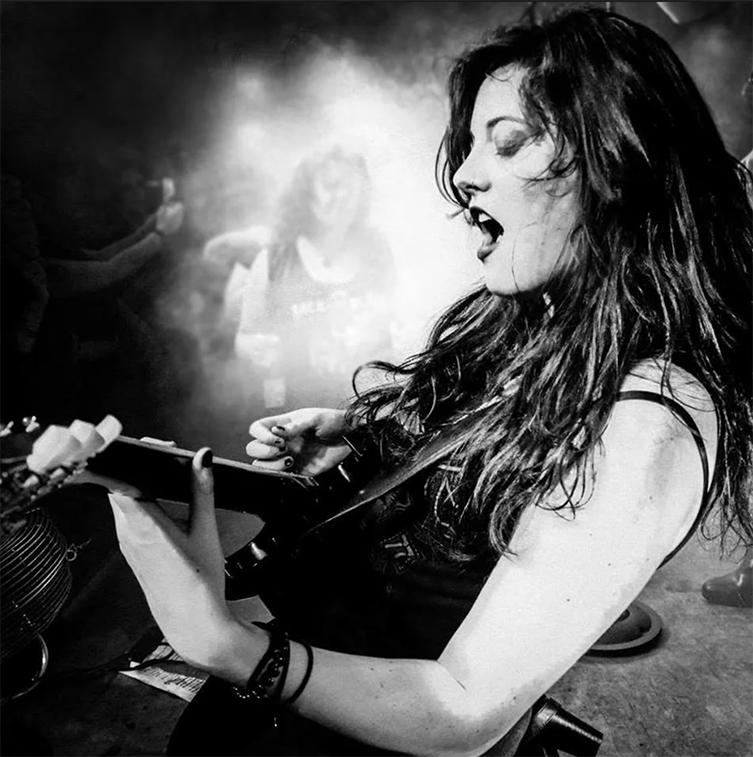
GG: Awesome! So, PRS aside, what else do you use in terms of strings, picks, amps and effects?
CG: So, I use 9-46 strings. Sometimes I go from standard to drop-D, so a 42 is too sloppy (laughs) So yeah, 9-46. For picks, I use the Jazz III, Dunlops, the little red ones or black ones, whatever colour they come in! Mine are red.
GG: The red ones are easier to find on the floor when you drop them! The black ones disappear into the pick-void, never to return.
CG: Yeah! Good point! I have the one with the grip, otherwise I just keep on losing them. So I like those. Also, I have an analog rig and a digital rig. I use the Helix from Line 6, the Stomp XL. When I want something simple, when I can’t drive or something like that, then I take that. For a long time I was like, ‘No, that’s not what I wanna do, it’s digital blah blah’, but actually, it’s really good. (laughs) The Helix products are, like, amazing! I don’t know, do you like them as well?
GG: Oh, I use one myself.
CG: Ah, nice!
GG: I got tired of dealing with five floors of tenement buildings and heavy valve amps, haha!
CG: Yeah, I was blown away! I use my Helix a lot. And when I can take my full rig, I play a brand called Invaders Amplification. They’re kind of new. It’s a Belgian brand, kinda similar to a JCM800, kind of the same vibe. So I use that. Pedal-wise, I have different fuzz pedals, my favourite pedal is the Whammy pedal, because you can be crazy and creative, I love this pedal so much! Obviously you can’t use it all the time as it might annoy people (laughs), but whenever I can use, I use it!
I use the wah pedal a lot, still my Kirk Hammett signature! For what I do, this wah is amazing!
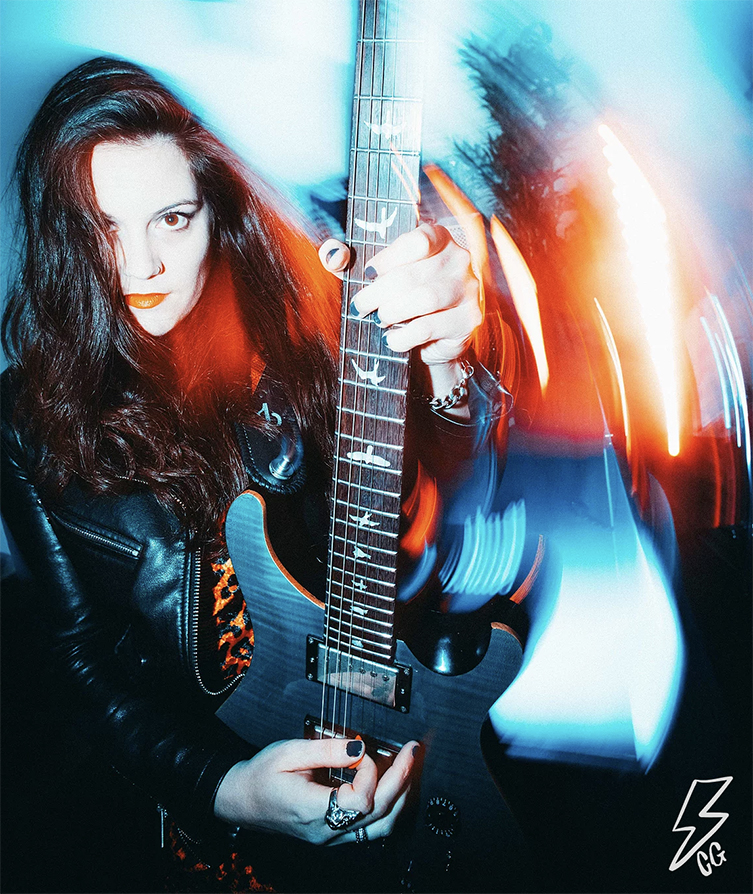
GG: That’s interesting that you bring up the Whammy pedal, Claire, because nobody has mentioned it to me for a while, but just last week, the chap I was interviewing (see our Ninth Wave interview) was also raving about it! I’ve always thought that the obvious thing was the Tom Morello screeches, but there’s so much more on there, too. How do you tend to use it?
CG: I use the divebomb a lot. That’s really cool because I don’t really like using a Floyd Rose on guitars. Obviously it’s a bit annoying to set up, and because I change tunings quite a bit, when you change it’s like, no, no Floyd Rose!
GG: It’s impossible! Let’s just call it out! It can’t be done!
CG: Yeah, exactly! And I don’t wanna be bringing three guitars for every gig, so I just gave up the Floyd Rose thing really quickly. When you have the Whammy, you can still do a pretty cool divebomb. Otherwise, I use the harmoniser a lot, the octaver... I do use them all as well. The pitch shifter is the most fun, though! I love Tom Morello, he is one of my favourite guitarists as well. I think it’s just a quick way to sound a little bit different without massively altering your technique, it’s such a weird effect that you’re gonna have heads turning straight away when you start going (makes the ‘Tom Morello’ noise)
GG: That’s very true! So, I was gonna ask if you had advice for people looking to get into the session scene, but you’ve pretty much answered that already! Would there be anything else to add?
CG: Yeah, maybe on top of everything I’ve said already, I think it’s important to find the one thing that you’re really good at, because if you try to cover everything, every style, people are not maybe going to think about you straight away when they need a guitarist. If it’s, like a rock guitarist with, I don’t know, an edgy hip hop side to their music, maybe they’ll think of them because ‘Oh, she likes rock but can also use the effect on the pedal board to have a different sound, so it’s not just straight ahead 80s rock’, just for example. You know what I mean. Having ‘your’ sound is going to help. Obviously, you’re going to have to be able to do what they want you to do but definitely don’t try to do everything, because then you’re not going to be good at anything.
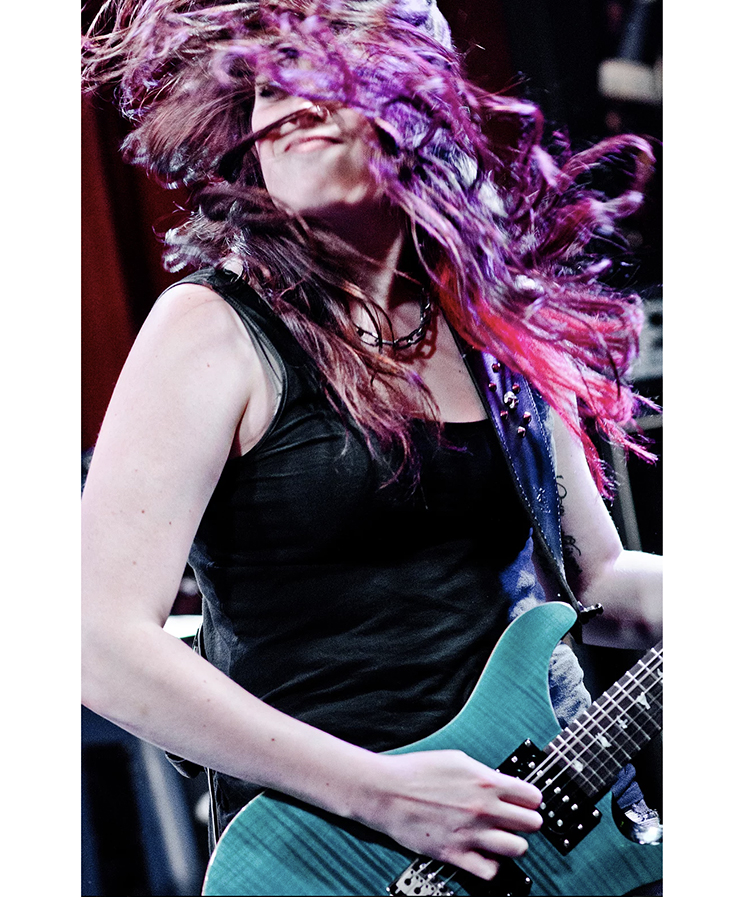
GG: That’s good advice! Yeah, it’s like: most of what you’re doing is gonna be stuff that most players can handle, but find the niche of what you’re uniquely good at, and make sure you accentuate that. Is it that kind of vibe?
CG: Yeah, and it’s the whole thing: if you need to rock, you need to look also like a rocker. It sounds stupid but it’s so true! If you’re gonna play live, people want you to look the part as well. That’s annoying but it’s true. Someone who is really into rock is not gonna look the same as someone who is really into jazz: you have to kind of choose, and be the kind of player you want to be. That goes for outside of when you actually play guitar, too, you know what I mean?
GG: Yeah, yeah! The Jazz guy could probably play Enter Sandman, but if he shows up with the tweed trousers and turtleneck jumper, he’s not gonna fit in with the rest of the band, is he?
CG: Yeah! And the guitar like here (mimes wearing a guitar very high up) haha! Exactly. Maybe the jazz guy is gonna play the solo better than you, but he’s not gonna get the gig! (laughs)
GG: Indeed, it’s like that famous Les Paul quote: ‘People listen with their eyes’. It’s the truest thing ever.
CG: Yeah, it’s so true. Whether you like it or not, it’s true, yeah!
GG: Cool, so, last thing just to round it all off: what is in the pipeline for you? What have you got coming up next?
CG: So, as I mentioned earlier, I’m doing my own project now, I’m recording. It’s going to be a duo that I’m doing with a singer that I met a few months ago. I can’t really talk a lot about it but it’s basically a mixture between Alice in Chains, Nine Inch Nails and Tool.
GG: That’s like my three favourite bands!
CG: We have two songs finished and we’re going to record them soon. The whole thing will be launched next year, so it’s really exciting because I’ve joined bands a lot but this is the first time I’m doing my own thing so I’m very happy to be just doing it. Otherwise still... gigs! Yeah! (laughs)
Well, that up-and-coming project sounds pretty excellent to us!
We think Claire shared a lot of great, real-world tips with us today, and we’d like to thank her for her time and candour. No doubt we’ll see here on a stage near us soon! Claire is a PRS Pulse artist, and you can browse our selection of PRS guitars by clicking the button at the bottom of the article.
Thanks for reading another of our exclusive interviews! You can find many more at our guitarguitar interviews page, including Billy Duffy, Steve Vai, Joe Satriani, Samantha Fish and many more!


